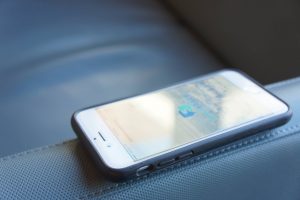
University of California, Berkeley, students are developing a website and mobile app to connect campus students
experiencing mental health issues with other students who face similar experiences.
The startup, called SafeSpace, placed first in the Improving Student Life category of UC
Berkeley’s 2016 Big Ideas contest, an annual competition aimed at providing students with
startup ideas and resources to help turn ideas into realities. The team won $10,000 in the
competition — money it has used to begin developing the app and website.
Over the course of the competition, the team decided to create a mobile app and website to foster communication and connection among students suffering from mental health problems.
The project now partners with the University Health Services program Cal Bears Say Hi. Like
SafeSpace, the Cal Bears Say Hi program works to foster peer-to-peer relationships to make
students feel more comfortable and less isolated on campus.
Monica Casanova, a public health major who is minoring in public policy and political economy,
came up with the idea for SafeSpace when she was working on a paper about mental health
support systems on campus. She suffered from severe depression her first year in college and said she wanted her paper to reflect her personal experiences of trying to navigate the resources on
campus — she felt they were lacking.
After working on the project, Casanova decided she wanted to find a way to improve
communication among students and lessen the sense of loneliness she felt while experiencing
depression.
“When I tried to seek out care, it didn’t seem to work out for me,” Casanova said. “I really didn’t
want that to happen [to anyone else].”
After Casanova applied for the Big Ideas competition, she posted in Facebook groups looking
for other students to join her team. Ann Nguyen, senior and a co-founder of SafeSpace, said she got involved because she felt the campus didn’t prioritize mental health.
She wanted to help provide additional resources to students experiencing mental illnesses such
as depression and eating disorders.
Nguyen added that as an Asian-American, her culture does not weigh mental health as highly
as physical health, which can require medical interventions. She said SafeSpace aims to fight
against such stigmas and normalize mental health disorders. She hopes SafeSpace will
encourage people to reach out when they are experiencing poor mental health before they
break down, she said.
“Usually, it’s at the point when it’s too late when they start talking about it,” Nguyen said. “We really want to try to get people to reach out for help before they reach that breaking point.”
Nguyen and her team initially approached Big Ideas as just a funding source, but realized over time that it was much more than that. She said the competition provided her team with connections to experts in the field, helped them clarify their vision and inspired them to continue
with the process.
Big Ideas Program Manager Adrienne Chuck said SafeSpace was one of Big Idea’s “greatest
projects.” For a student body of about 36,000, the campus has only about 50 counselors, which
she called a “ridiculous ratio.” Chuck said that the team’s approach of creating a peer-to-peer
platform was incredibly innovative and that she believes the project will have a wide-reaching
effect on UC Berkeley.
Chuck added that the team underwent extraordinary growth as entrepreneurs during the
nine-month competition.
“The growth that we saw in this team over the course of nine months was incredible — they were so focused on making the Cal environment better,” Chuck said. “I was so inspired watching them dedicate themselves to solving this problem.”







Be First to Comment